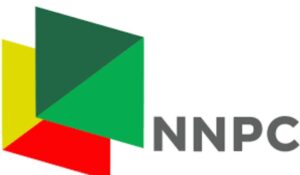

By correspondent in Lagos.

Photo credit: Google.
The Nigerian National Petroleum Company Limited (NNPC) has announced that it is ending the long-standing practice, opting instead to source refined products from the Dangote Petroleum Refinery,after decades of importing petroleum products.
The move is expected to save Nigeria up to $10 billion annually in foreign exchange, with NNPC now purchasing from the 650,000 barrels-per-day Dangote refinery in Lagos.
NNPC’s Group Chief Executive Officer, Mr. Mele Kyari, made the announcement in Lagos during his keynote address at the 42nd annual international conference of the Nigerian Association of Petroleum Explorationists (NAPE). This shift comes on the heels of an agreement by the Independent Petroleum Marketers Association of Nigeria (IPMAN) to directly purchase refined products from the $20 billion Dangote facility.
Our correspondent reports that the earlier arrangement had been that independent marketers were required to source products from NNPC rather than directly from Dangote, a policy they had long opposed.
However, in line with the Petroleum Industry Act (PIA) 2021, which mandates oil producers to supply crude to domestic refineries, Kyari emphasized that NNPC would no longer engage in the importation of refined products.
Kyari, who also highlighted NNPC’s part-ownership stake in Dangote Refinery, explained that supplying crude to domestic refineries, including Dangote, was a strategic business decision to ensure a market for Nigerian crude in the face of shrinking global demand.
“It is a well-informed business decision,” Kyari said, adding that NNPC’s participation in the Dangote Refinery was a win-win for both parties, enabling the company to meet its crude oil obligations while supporting local refining capacity.
He clarified that selling crude to local refineries in naira, as stipulated by the Domestic Crude Oil Obligation (DCOO), would not result in a loss of value but rather strengthen the domestic economy by eliminating foreign exchange dependency.
Kyari further reassured stakeholders that NNPC would continue to support local refineries, adding that oil producers were bound by law to supply crude to NNPC refineries once they resume full operations.
Kyari also addressed concerns about gas supply infrastructure, revealing that NNPC is solely responsible for developing the country’s gas delivery systems as part of its energy security mandate under the PIA.
He disclosed plans to roll out 12 Compressed Natural Gas (CNG) stations by Q1 2025 and revealed that NNPC is working on a mini LNG plant to further boost domestic gas supply.
On the upstream sector, the Nigerian Upstream Petroleum Regulatory Commission (NUPRC) revealed that the country’s oil production has risen to 1.8 million barrels per day, with plans to reach 2 million bpd by December.
NUPRC’s CEO, Mr. Gbenga Komolafe, said that the commission’s Project 1 Million BPD initiative, launched by President Bola Tinubu, is expected to add an additional one million barrels per day over the next 12 to 24 months.
Meanwhile, IPMAN’s National President, Abubakar Shettima, has called for full support of the Dangote Refinery by all members, urging them to rely on local refineries for petroleum products to ensure job creation and support for Nigeria’s energy independence.
Shettima also emphasized IPMAN’s commitment to the federal government’s CNG initiative, which is expected to further bolster the nation’s energy sector.
The Repotyers reports that these developments mark a significant shift towards Nigeria’s energy self-sufficiency and are expected to strengthen the country’s economic resilience.
Vanguard.
Edited by Dada Ahmed.

